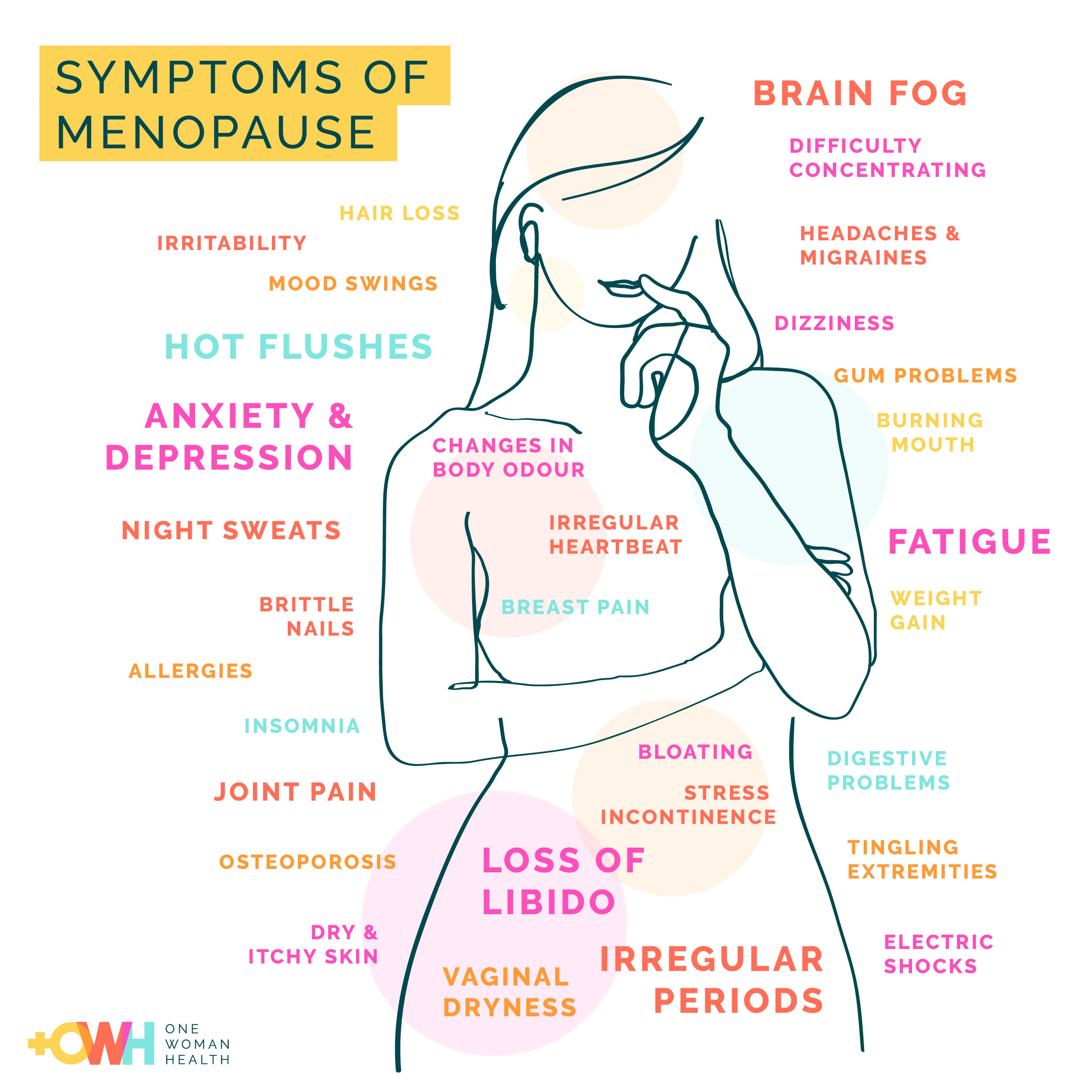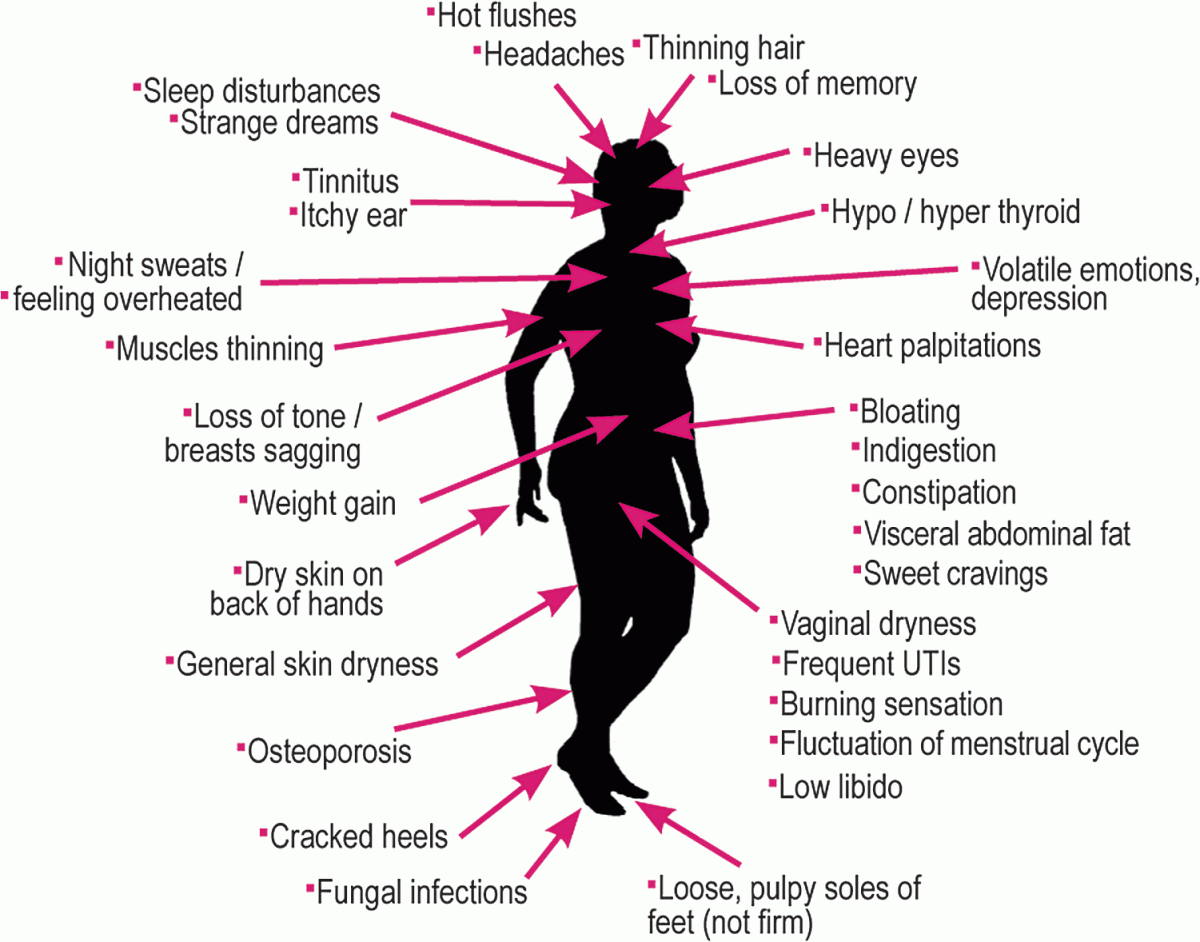Menopause, a significant transition in a woman’s life, marks the end of menstruation and fertility. Understanding the start of menopause signs and symptoms is crucial for navigating this phase with ease and empowerment. This guide delves into the physical, emotional, and lifestyle aspects associated with the onset of menopause, providing valuable insights and practical guidance.
As women approach menopause, their bodies undergo hormonal shifts that trigger a range of physical symptoms, including hot flashes, night sweats, and vaginal dryness. Emotional changes such as irritability, anxiety, and mood swings are also common. This guide explores the causes and effects of these symptoms, offering strategies for managing their impact.
Introduction

Menopause is a natural biological process that marks the end of a woman’s reproductive years. It is characterized by the cessation of menstruation and a decline in the production of the hormones estrogen and progesterone. Menopause typically occurs between the ages of 45 and 55, with the average age being around 51.
The “start of menopause” refers to the point at which a woman’s menstrual cycles become irregular and eventually stop. This can be a gradual process that takes several years, or it can happen more suddenly. During this time, a woman may experience a variety of symptoms, including hot flashes, night sweats, mood swings, and changes in sleep patterns.
Definition of Menopause
Menopause is defined as the permanent cessation of menstruation for at least 12 consecutive months. It is a natural biological process that all women will experience as they age. The average age of menopause is 51, but it can occur earlier or later depending on a number of factors, including genetics, lifestyle, and overall health.
Symptoms of Menopause
The most common symptoms of menopause include:
- Hot flashes
- Night sweats
- Mood swings
- Changes in sleep patterns
- Vaginal dryness
- Weight gain
- Loss of bone density
- Increased risk of heart disease and stroke
Physical Signs and Symptoms

The onset of menopause is characterized by a range of physical signs and symptoms. These changes are primarily driven by hormonal fluctuations, particularly the decline in estrogen and progesterone levels. Let’s explore some of the most common physical manifestations associated with the start of menopause.
The hormonal changes that occur during menopause can have a significant impact on the body’s functioning. The decline in estrogen levels can lead to:
- Vasomotor symptoms: Hot flashes, night sweats, and flushing
- Urogenital atrophy: Vaginal dryness, itching, and discomfort
- Osteoporosis: Reduced bone density, increasing the risk of fractures
- Cardiovascular changes: Increased risk of heart disease and stroke
In addition to these hormonal effects, menopause can also bring about other physical changes, such as:
- Irregular periods: Menstrual cycles become shorter or longer, and eventually cease altogether.
- Sleep disturbances: Difficulty falling or staying asleep
- Mood swings: Irritability, anxiety, and depression
- Weight gain: Redistribution of body fat, particularly around the abdomen
Emotional and Psychological Changes
The onset of menopause can trigger a cascade of emotional and psychological shifts as the body undergoes significant hormonal fluctuations. These changes can impact mood, sleep patterns, and cognitive function.
Mood Changes
Estrogen and progesterone, hormones that play a crucial role in mood regulation, experience a decline during menopause. This hormonal imbalance can lead to:
- Increased irritability
- Anxiety and nervousness
- Emotional lability
- Mood swings
- Difficulty concentrating
- Depression
Sleep Disturbances, Start of menopause signs and symptoms
Menopause can disrupt sleep patterns due to hormonal changes and other factors such as hot flashes and night sweats. Common sleep issues include:
- Difficulty falling or staying asleep
- Frequent awakenings during the night
- Waking up feeling unrested
- Increased daytime sleepiness
Cognitive Changes
Some women may experience cognitive changes during menopause, including:
- Memory lapses
- Difficulty concentrating
- Reduced attention span
- Slower processing speed
Lifestyle Modifications

Lifestyle modifications can play a significant role in managing the signs and symptoms of menopause. These changes can help alleviate discomfort, improve overall well-being, and enhance quality of life.
Maintaining a healthy diet, exercising regularly, and getting adequate sleep are essential aspects of menopause management.
Dietary Considerations
- Consume a balanced diet:Focus on consuming nutrient-rich foods such as fruits, vegetables, whole grains, and lean protein.
- Limit processed foods, sugary drinks, and unhealthy fats:These foods can contribute to inflammation and worsen menopause symptoms.
- Consider adding phytoestrogen-rich foods:Soy, tofu, and lentils contain compounds that may help alleviate hot flashes and other symptoms.
Exercise and Physical Activity
- Engage in regular exercise:Aim for at least 150 minutes of moderate-intensity exercise or 75 minutes of vigorous-intensity exercise per week.
- Choose activities you enjoy:Exercise should be enjoyable to sustain motivation.
- Incorporate weight-bearing exercises:These exercises help maintain bone density and reduce the risk of osteoporosis.
Sleep and Rest
- Establish a regular sleep-wake cycle:Go to bed and wake up around the same time each day, even on weekends.
- Create a relaxing bedtime routine:Engage in activities that promote relaxation before bed, such as reading, taking a warm bath, or practicing meditation.
- Avoid caffeine and alcohol before bed:These substances can interfere with sleep quality.
Other Lifestyle Modifications
- Manage stress:Stress can exacerbate menopause symptoms. Engage in stress-reducing activities such as yoga, meditation, or spending time in nature.
- Avoid smoking:Smoking worsens hot flashes and other symptoms.
- Limit alcohol consumption:Excessive alcohol intake can disrupt sleep and worsen hot flashes.
Medical Interventions
:max_bytes(150000):strip_icc()/2322667-article-early-signs-of-menopause-5a4cfd9af1300a00373f55f9.png)
Medical interventions can alleviate the signs and symptoms of menopause, improving the overall well-being of individuals experiencing this transition. These interventions include hormone replacement therapy (HRT), selective estrogen receptor modulators (SERMs), and other medications.
Hormone Replacement Therapy (HRT)
HRT involves administering estrogen or a combination of estrogen and progestin to replenish the declining hormone levels during menopause. It effectively reduces hot flashes, night sweats, and vaginal dryness. HRT is available in various forms, including oral tablets, transdermal patches, gels, and creams.
Selective Estrogen Receptor Modulators (SERMs)
SERMs are non-hormonal medications that bind to estrogen receptors in specific tissues, such as bone and the uterus. They mimic the effects of estrogen in these tissues, providing benefits like reducing hot flashes and protecting against osteoporosis. SERMs are typically prescribed for women who cannot take HRT due to certain medical conditions, such as a history of breast cancer.
Other Medications
Other medications can be used to manage specific symptoms of menopause. These include antidepressants for mood swings and anxiety, sleep aids for insomnia, and vaginal lubricants for vaginal dryness. Your healthcare provider can determine the most appropriate medical interventions based on your individual needs and health history.
Final Wrap-Up
Navigating the start of menopause can be a transformative experience. By understanding the signs and symptoms associated with this phase, women can make informed decisions about their health and well-being. Lifestyle modifications, such as maintaining a healthy diet and exercising regularly, can significantly alleviate symptoms.
Medical interventions, including hormone replacement therapy, can also provide relief and improve quality of life. This guide serves as a comprehensive resource for women embarking on this new chapter, empowering them to embrace menopause with confidence and grace.
FAQs: Start Of Menopause Signs And Symptoms
What are the earliest signs of menopause?
Irregular periods, hot flashes, and vaginal dryness are often the earliest signs of menopause.
How long do menopause symptoms last?
Menopause symptoms can last anywhere from a few months to several years, varying from woman to woman.
Can menopause symptoms be treated?
Yes, lifestyle modifications, such as exercise and a healthy diet, can help alleviate symptoms. Medical interventions, such as hormone replacement therapy, can also provide relief.